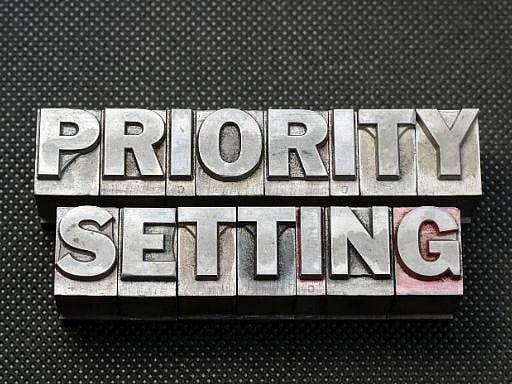Main Links

Last Updated February 13, 2023
 Project management is the practice of initiating, planning, executing, controlling, and closing the work of a team to achieve specific goals and meet specific success criteria. It involves a series of steps that ensure the effective and efficient completion of projects from start to finish.
A successful project manager must be able to plan, organize, monitor, control, and complete tasks in a timely manner. With effective project management, an organization can increase efficiency, reduce time and cost, and improve productivity.
Project management is a systematic process of planning, organizing, leading, and controlling resources to achieve specific goals. It involves defining the project goals and objectives, determining the resources needed to accomplish those goals, and scheduling and monitoring activities.
Project management helps to ensure that all of the tasks associated with completing a project are completed on time and within budget. It also helps to ensure that the project remains on track and that any changes or deviations from the original plan are addressed and resolved.
Additionally, effective project management helps to foster collaboration and communication between the members of a project team, as well as with stakeholders, clients, and other interested parties. By using project management techniques, organizations can ensure that their projects are completed on time and on budget.
Project management is the practice of initiating, planning, executing, controlling, and closing the work of a team to achieve specific goals and meet specific success criteria. It involves a series of steps that ensure the effective and efficient completion of projects from start to finish.
A successful project manager must be able to plan, organize, monitor, control, and complete tasks in a timely manner. With effective project management, an organization can increase efficiency, reduce time and cost, and improve productivity.
Project management is a systematic process of planning, organizing, leading, and controlling resources to achieve specific goals. It involves defining the project goals and objectives, determining the resources needed to accomplish those goals, and scheduling and monitoring activities.
Project management helps to ensure that all of the tasks associated with completing a project are completed on time and within budget. It also helps to ensure that the project remains on track and that any changes or deviations from the original plan are addressed and resolved.
Additionally, effective project management helps to foster collaboration and communication between the members of a project team, as well as with stakeholders, clients, and other interested parties. By using project management techniques, organizations can ensure that their projects are completed on time and on budget.
 When it comes to effective project management, one of the most important steps is to define your goals. Knowing what you want to achieve will help you ensure that your project is successful and that all team members are focused on the same objectives.
It's also important to set realistic goals and break them down into smaller, achievable tasks that can be worked on incrementally. This will help keep everyone motivated and working together towards a common goal.
Defining the goals of a project is an essential step in effective project management. It involves determining what the project will achieve, setting reasonable, achievable objectives, and determining the timeline for completion.
When defining the objectives for a project, it is important to consider the scope, budget, quality, and timeline of the project. Additionally, it is important to consider the resources available to the project and how they will be used.
Once the goals have been established, they should be communicated to all stakeholders and team members. Doing so will ensure that everyone is on the same page and working towards the same objectives.
Finally, it is important to review and adjust the goals as needed as the project progresses. This will ensure that the project is successful and remains on track.
When it comes to effective project management, one of the most important steps is to define your goals. Knowing what you want to achieve will help you ensure that your project is successful and that all team members are focused on the same objectives.
It's also important to set realistic goals and break them down into smaller, achievable tasks that can be worked on incrementally. This will help keep everyone motivated and working together towards a common goal.
Defining the goals of a project is an essential step in effective project management. It involves determining what the project will achieve, setting reasonable, achievable objectives, and determining the timeline for completion.
When defining the objectives for a project, it is important to consider the scope, budget, quality, and timeline of the project. Additionally, it is important to consider the resources available to the project and how they will be used.
Once the goals have been established, they should be communicated to all stakeholders and team members. Doing so will ensure that everyone is on the same page and working towards the same objectives.
Finally, it is important to review and adjust the goals as needed as the project progresses. This will ensure that the project is successful and remains on track.
 Communication is key when it comes to effective project management. Whether it's with your team members or stakeholders, staying in touch and frequently checking in can help keep everyone on the same page and make sure that no one is left in the dark.
Keeping everyone up to date on the progress of a project can help maintain a healthy relationship with your team and ensure that everyone is working together to meet the project's deadlines. When communicating with team members, it's important to keep the lines of communication open and to be clear and concise in your messages.
Make sure everyone knows what their role is and what they need to do to contribute to the success of the project. Set up regular team meetings to discuss progress and any issues that may have arisen so that everyone is kept up to date.
Additionally, it's important to make sure that everyone is comfortable with their assigned tasks and that any questions or concerns are addressed in a timely manner. Make sure that team members are aware of their deadlines and that they are given the tools and resources they need to get the job done.
Finally, it's important to recognize and reward each team member's contributions to the project. Showing appreciation for their efforts can help to create a positive and productive working environment.
Communication is key when it comes to effective project management. Whether it's with your team members or stakeholders, staying in touch and frequently checking in can help keep everyone on the same page and make sure that no one is left in the dark.
Keeping everyone up to date on the progress of a project can help maintain a healthy relationship with your team and ensure that everyone is working together to meet the project's deadlines. When communicating with team members, it's important to keep the lines of communication open and to be clear and concise in your messages.
Make sure everyone knows what their role is and what they need to do to contribute to the success of the project. Set up regular team meetings to discuss progress and any issues that may have arisen so that everyone is kept up to date.
Additionally, it's important to make sure that everyone is comfortable with their assigned tasks and that any questions or concerns are addressed in a timely manner. Make sure that team members are aware of their deadlines and that they are given the tools and resources they need to get the job done.
Finally, it's important to recognize and reward each team member's contributions to the project. Showing appreciation for their efforts can help to create a positive and productive working environment.
 Successful project management requires taking responsibility for your actions and decisions. As the manager, you must be willing to take ownership of any successes or failures and accept it as part of the job.
Without this sense of personal responsibility, it can be difficult to stay motivated and engaged with the project. Taking responsibility for your actions also helps to ensure that everyone is held accountable for their part in the project, creating a team that is invested in its success.
Taking responsibility for your actions is a key component of effective project management. It means acknowledging the role you play in the project and the impact of your decisions on the outcome of the project. It also means being honest about mistakes and taking steps to correct them.
This helps to ensure that the project is on track and that everyone is held accountable for their part in it. Taking responsibility also shows that you are invested in the project, demonstrating your commitment to its success.
This can help to motivate and inspire those around you, creating an atmosphere of collaboration and accountability. In the end, taking responsibility for your actions can lead to a successful project, as well as a strong sense of ownership and pride in the work you have done.
Successful project management requires taking responsibility for your actions and decisions. As the manager, you must be willing to take ownership of any successes or failures and accept it as part of the job.
Without this sense of personal responsibility, it can be difficult to stay motivated and engaged with the project. Taking responsibility for your actions also helps to ensure that everyone is held accountable for their part in the project, creating a team that is invested in its success.
Taking responsibility for your actions is a key component of effective project management. It means acknowledging the role you play in the project and the impact of your decisions on the outcome of the project. It also means being honest about mistakes and taking steps to correct them.
This helps to ensure that the project is on track and that everyone is held accountable for their part in it. Taking responsibility also shows that you are invested in the project, demonstrating your commitment to its success.
This can help to motivate and inspire those around you, creating an atmosphere of collaboration and accountability. In the end, taking responsibility for your actions can lead to a successful project, as well as a strong sense of ownership and pride in the work you have done.
 Good project management requires setting priorities wisely. It’s important to be realistic about how much time and resources you can devote to each task, and adjust accordingly.
Make sure to schedule activities in order of importance and identify which tasks need to be completed first. Breaking down your project into smaller tasks will also help keep you organized and on-track.
Taking the time to prioritize your tasks is essential for completing projects efficiently and on-time. It’s important to take the time to assess the tasks that need to be completed and rank them in order of importance.
This helps ensure that the most critical tasks are completed first and that the project is completed in a timely and efficient manner. When setting priorities, it's also important to be realistic about the number of resources and time that can be devoted to each task.
Make sure to break down the project into smaller tasks, so that each task can be easily managed. This will also help you stay organized and on-track. It's important to consider the long-term goals of the project and make sure that each task is contributing to the overall success of the project.
This will help ensure that the project is completed in the most efficient way. Finally, it's important to remain flexible and adjust your priorities as needed. As the project progresses, new tasks may arise or priorities may change.
Be prepared to adapt and re-prioritize tasks as needed. By setting priorities wisely and remaining flexible, you will be able to complete the project efficiently and on-time.
Good project management requires setting priorities wisely. It’s important to be realistic about how much time and resources you can devote to each task, and adjust accordingly.
Make sure to schedule activities in order of importance and identify which tasks need to be completed first. Breaking down your project into smaller tasks will also help keep you organized and on-track.
Taking the time to prioritize your tasks is essential for completing projects efficiently and on-time. It’s important to take the time to assess the tasks that need to be completed and rank them in order of importance.
This helps ensure that the most critical tasks are completed first and that the project is completed in a timely and efficient manner. When setting priorities, it's also important to be realistic about the number of resources and time that can be devoted to each task.
Make sure to break down the project into smaller tasks, so that each task can be easily managed. This will also help you stay organized and on-track. It's important to consider the long-term goals of the project and make sure that each task is contributing to the overall success of the project.
This will help ensure that the project is completed in the most efficient way. Finally, it's important to remain flexible and adjust your priorities as needed. As the project progresses, new tasks may arise or priorities may change.
Be prepared to adapt and re-prioritize tasks as needed. By setting priorities wisely and remaining flexible, you will be able to complete the project efficiently and on-time.